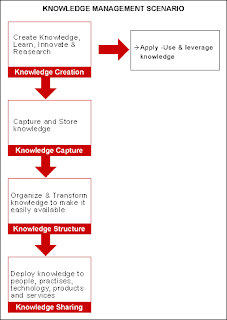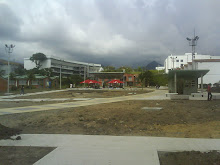People tend to work within sites of information that don’t get shared across an organization easily. People are forced to indulge in repetitive work when they could actually tap into a knowledge system and work in a more innovative manner. A knowledge management system should afford an easy-to-use interface and allow access to information based on the role the user plays. This system would connect to all kinds of documents like web pages, text documents, spreadsheets, emails, PDF docs, images and more. Information also exists in people’s heads and I’d like this system to provide an impetus for people to document or share knowledge that is resident in their heads.
 System advantages:
System advantages:1. The exchange of valuable information organization along the organizational hierarchy.
2 You can avoid having an ability to invent the wheel, reducing redundancies.
3. You can reduce training time for new employees
4. Retention of intellectual property after the employee leaves if such knowledge can be codified.Measuring KMSIt is important to try to develop metrics to assess the benefits of KMS. Although none of the organizations participating in other interview had are conducted particularities that formal cost-benefit analysis for the measuring of KMS, persons conducted development the interview are interesting, they says for measuring the value, quality and quantity of knowledge is a key for a factor in the long-term success and growth of KMS.more information visit the following pages:http://www.krowledge.es.tl/
www.kms1.blogspot.com
